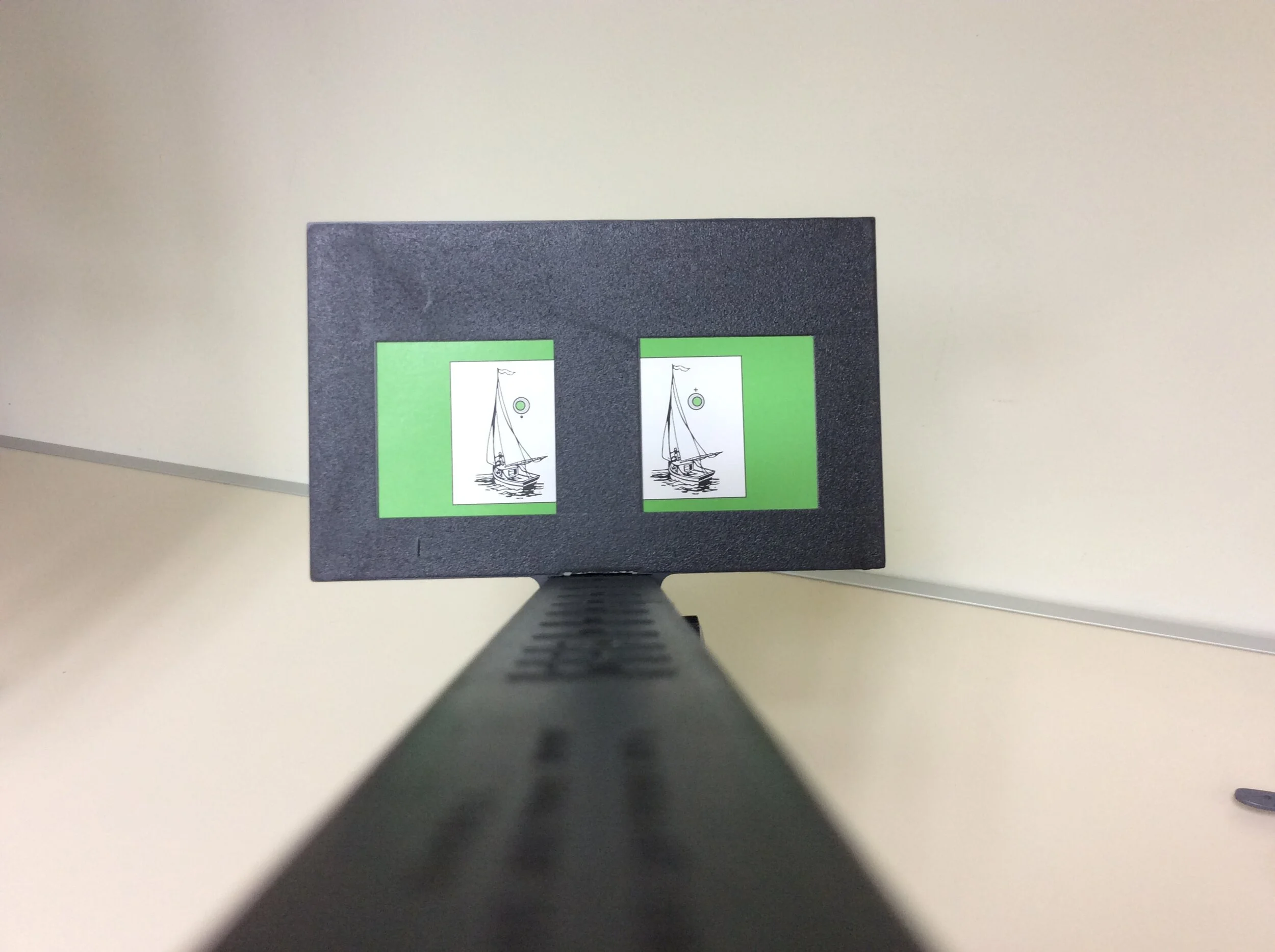Behavioural optometrists understand that Vision is much more than the size of letters seen on a chart. Seeing “20/20” is no guarantee of comfortable, effortless, visual perception. Vision is a dynamic process, integrated with the rest of our senses and body. Vision encompasses how we interpret what we see and how we direct our actions in response to these inputs from throughout our body.
When a child or adult has poor focus ability, eye teaming or eye movements, vision becomes uncomfortable, possibly blurred or even double. This reduces attention for learning, driving, working or sporting activities. Some of these deficits may be evident from an early age, such as amblyopia (lazy eye) or strabismus (eyes misaligned). Or difficulties may become apparent in the early to mid primary school years as text becomes smaller and more demanding. Adults may develop binocular vision difficulties following a stroke or brain injury, or eye teaming problems may emerge as our focusing system wanes beyond our forties.
Recent research shows vision training has effects not just on eye muscles, but also throughout the visual pathways of the brain. Modern forms of amblyopia treatment are being developed based on the evolving understanding of neuroplasticity.
I often see young children and teenagers as well as adults who have developed visual discomfort, blur or double vision due to visual skill dysfunctions. With in-depth Binocular Vision Assessment, I can explore how their vision process responds when the visual system is placed under stress, highlighting areas of weakness or maladaptation. An individualized, age-appropriate Vision Therapy program is designed to address their needs. A primary aim in Office and Home Vision Therapy sessions is to have a sense of curiosity about how your visual system works and how you can change it. Each vision activity provides an opportunity to discover using your vision in a more efficient, effective way.
An Aperture Rule is used to work on eye teaming skills
Working with children and parents, who become “home vision therapists”, is both challenging and rewarding for everyone involved. Daily home practice develops and consolidates vision skills. We meet fortnightly to review progress and go through activities that require specialised equipment or guidance not suitable for home practice. New activities are introduced as vision skills develop. As well as improved visual function, comfort and clarity, I often see self-confidence increase.
As we learn more about neuroplasticity, and new delivery methods are developed, Vision Therapy is becoming more widely recognised as an exciting vision treatment for all ages.
I have spent the past six years furthering my Vision Therapy skills and knowledge through ACBO (Australasian College of Behavioural Optometry https://www.acbo.org.au/ ) and OEP (Optometric Extension Program https://www.oepf.org/ ). You may like to visit these websites to learn more about Behavioural Optometry (also known as Developmental Optometry).




